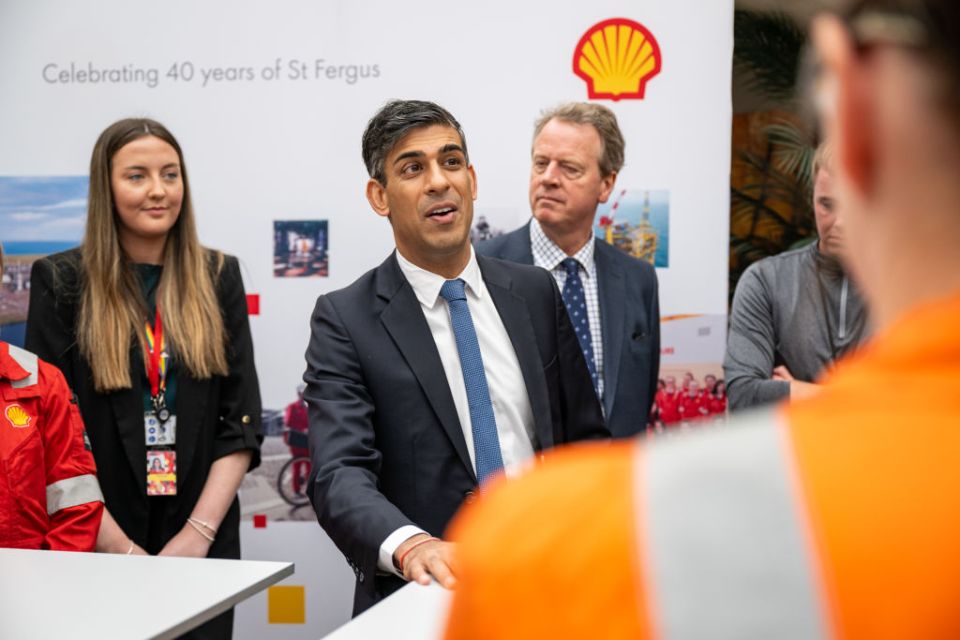Further North Sea exploration won’t lower bills, but it will limit green jobs

More oil and gas in the North Sea is prioritising an industry which will mean, in the long term, bills are higher and we’re further away from self-reliance, writes Nigel Pocklington
UK businesses are ready to deliver an economy powered by clean renewable power, but the Government’s flip-flopping around its climate commitments risks derailing the economy as well as adding fuel to the era of “global boiling”.
On Wednesday, Grant Shapps met energy industry leaders at a Downing Street summit, purportedly to drive forward their plans to improve the UK’s energy security. Their opening gambit this week was to support new fossil fuel exploration, with the focus on holding another oil and gas licencing round open to businesses looking to expand existing fields or develop new projects.
The stated aims of the plan are to create jobs and reduce our reliance on Russian gas, and that of other potentially hostile states.
Of course, we must end this reliance. But we need to end our reliance on all oil and gas to be truly secure from the twin threats of hostile states and climate change.
The reality is that by prioritising further oil and gas exploration, the PM is playing with fire that risks us all – consumers and businesses, the green economy, and the planet – getting burned.
Further North Sea exploration won’t lower energy bills – energy produced will be sold back to us at market price.
And it will make precious little difference to UK energy security. From what we know, there is not enough oil and gas remaining outside of existing fields in the North Sea to make much of a difference to our overall output, even if we threw the kitchen sink at new exploration.
Unfortunately, the plan feels more motivated by short-term politics than by long-term strategy or commitment to addressing the most pressing challenges of our time.
More support for North Sea oil and gas, even when combined with more funding for carbon capture, is entirely the wrong focus.
Investment in CCS is fine and yes, technologies to remove carbon from the atmosphere could be vital – but not as an excuse to keep drilling for more oil. Prioritising CCS over renewables is irresponsible, when the overwhelming weight of scientific evidence – not to mention record heatwaves and wildfires engulfing parts of Europe – tells us time is not on our side. CCS hasn’t yet been deployed at scale because no-one knows how to do it economically. Many forms of renewable energy are proven technologies that have successfully scaled-up to producing 41.5 per cent of the UK’s electricity last year, from just 6.7 per cent in 2010.
But it is not just our climate commitments that are at risk here.
The government talks about job creation and growing the economy, but these too are risked by its plans.
UK businesses are ready to further scale up the delivery of renewable power at the magnitude required. As the leader of a business that provides renewable electricity and provides services such as heat pump and solar panel installation to help homes and businesses generate, store, use and share their own power, I know the market demand is there, and that the capabilities of companies in the green economy have been scaling up rapidly.
But to create jobs and grow the economy, the political will of government is essential.
The continued commitment to fossil fuel exploration, combined with other mixed messages including around the 2030 ban on sales of petrol and diesel cars and ULEZ expansion, risks sending a harmful message internationally that the UK’s commitment to climate targets is secondary to election strategy.
The UK is losing green investment to the US and European Union because its policy is either stalling or in retreat, and losing the investment battle will make it much harder for green businesses to grow, thrive and create jobs in the UK.
To reverse that battle we need political leadership that shows genuine commitment to building a clean, green, renewable-powered economy.
Leadership that tackles energy efficiency in our buildings on an industrial scale. Leadership that tackles the backlog of renewable projects by sorting out planning delays and investing in grid improvements. Leadership that makes solar panel installation compulsory on new buildings, drives the replacement of gas boilers with greater incentives for heat pump installation, and doubles down on support for electric vehicle infrastructure development.
The fast growth of offshore wind in the UK has demonstrated what can be achieved by industry with political will behind it.
The same commitment to ramping up renewables and transitioning away from fossil fuels will be essential if we are not only to achieve true energy security, but build a powerhouse of a green economy in doing so.